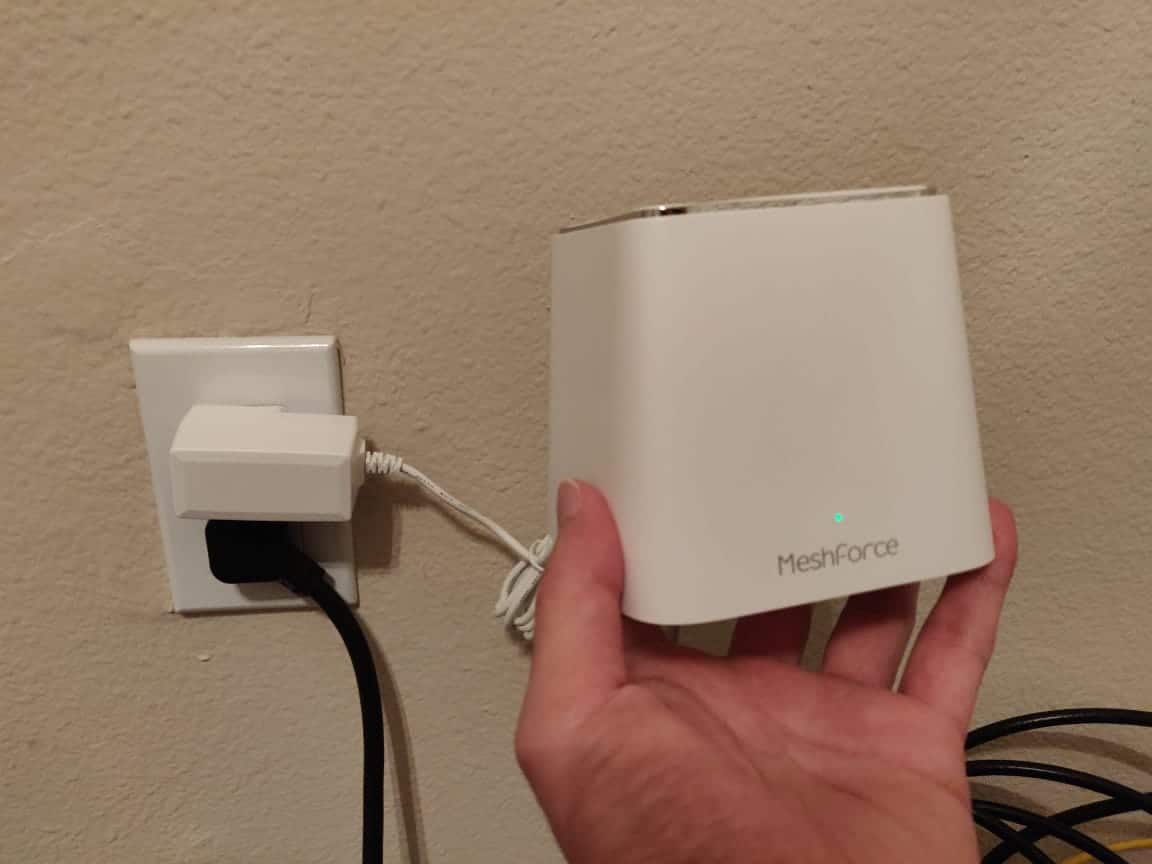Mesh WiFi Systems: What Are They and Why Do They Work So Well?
If you have a home WiFi network – and over three-quarters of American households do – you’re no stranger to dropped signals and dead spots. Imagine you’re upstairs happily checking Facebook or perhaps streaming a video on YouTube then you wander down to grab a coffee. Suddenly the page struggles to load or the video buffers leave you seething and asking why a brisk fiber connection performs like 90s dial-up just when you need it most. Well, the answer lies not as much in the connection itself but in the router. Luckily, a better alternative is coming to prominence in the form of mesh WiFi networks. In this article, you’ll look today at what these networks are, how they work and why they might be the most effective way to update your home internet without spending a fortune.
Is A Patchy WiFi Signal Such a Big Deal?

The importance of a rock-solid
WiFi connection depends pretty much entirely on you and your circumstances. If
you are a light web user and do little more than occasionally send emails or
check your social media accounts, stability and strength of signal throughout
the whole house probably don’t come too high on your list of priorities.
Perhaps you work from home, though. Whether you’re teaching English online or
conducting home-based business, you really can’t afford a patchy signal. How
about smart home devices? Firstly, the number of extra devices will in and of
itself be placing more burden on your regular router, obviously not a good
thing. So straight off the bat, connected homeowners are suffering. Beyond
this, while a minor glitch in signal might not be a big deal with a smart light
or an air quality monitor when it comes to home security systems and cameras,
seamless connectivity becomes much more important. So, if you plan to build out
a complete connected home, it really is critical to get reliable and solid WiFi
coverage throughout your home. Having presented you with the problem – albeit
one you’re probably already aware of – it’s time to double down on the
solution. Fortunately, that solution is now easily available and just as simple
to implement. The answer is to invest in a mesh WiFi system.
What Is a Mesh WiFi System?
Mesh networks have been used for years in businesses or anywhere that consistent signal and a secure network is critical. The technology underpinning these secure and stable networks has now made its way into residential homes the world over. You can now take advantage of the principles of mesh networking to optimize the signal in your smart home. This is especially valuable in multi-floored properties with too many walls and too much interference for a regular router to fully deliver. Where a WiFi router sends out a single blast of the signal, a mesh network is more like a sprinkler system. In place of just a single router, you’ll also get multiple nodes –small mesh modules - placed around the house. These are all connected to your router.
A series of smaller but more powerful signals are blasted out resulting in full WiFi coverage throughout the house. Unlike the regular system with just one router, mesh systems are modular. Most mesh WiFi systems like Meshforce M3 come with 2 or 3 nodes but you can build out your system with as many modules as you need for complete flexibility. So… The concept is simple and the result is much stronger and more reliable WiFi wherever you are in the house. You might be thinking this is the same as a repeater or extender but that’s not strictly accurate. With these, the signal is simply relayed but it also degrades as it’s pinged along. With a mesh system, the nodes are all communicating with each other. This allows all nodes to enjoy a robust signal even if they’re far away from the router.
Most mesh
WiFi systems like Meshforce M1 use a combination of 2.4GHz and 5GHz
frequencies. 5GHz is quicker and allows you to stream 4K video while the slower
2.4GHz does a far better job of penetrating barriers like plasterboard. Some
systems are dual-band, some tri-band, and some offer multiple user, multiple
input/output (MU-MIMO) functionality. Whatever the differences, you’ll get
several access points rather than a single point and your house will be
blanketed with deep WiFi coverage from corner-to-corner. So it’s time to throw
out that router, right?
Do You Still Need a Router With Mesh Systems?
You certainly should get
rid of your router since you’ll need the modem it contains. The mesh system
will replace the work done by the router part but you’ll still need the
integrate modem to connect to the internet. Indeed, the first thing you need to
do when setting up your mesh system is to plug in one of the nodes to your
router using an Ethernet cable. You only need to do this with a single node
since the rest will pick up the signal wirelessly. The remainder of the set-up
is extremely simple and you can take care of everything in-app without
tinkering around too much or reconfiguring anything. Meshforce M3 is a great
example of the best mesh systems. You can easily set up this device with the
Mesh app.
3 of The Best Mesh WiFi Systems
Here is the list of some
best mesh systems with their brief product reviews. Here are 3 of the very strongest
ways you can boost the reliability and extent of your WiFi coverage even if
you’ve got a larger home.
1) Netgear Orbi Whole Home Mesh WiFi System
If you consider ramping
up your WiFi signal as an investment rather than an expense, you should seriously
think about Netgear’s top-notch Orbi mesh WiFi system, ideal for even the
largest smart homes with demanding requirements. This system is available in
several configurations including an Ultra-Performance version and another
packing Alexa functionality assuming you have the requisite device. Speed runs
to 2.2Gbps across homes as large as 6000 square feet with all flat spots and
tedious buffering eliminated. While this is not the most delicate of solutions,
the rugged units greatly surpass the performance you’ll get from a router which
might be tiny but simply fails to fully deliver. If you need a wired connection
for your TV, you’ll get a pair of Ethernet ports. Set-up is close to
plug-and-play whether you choose to use the app or a browser. This is great
news if you panicked about mesh WiFi systems imagining you’d need a PhD to get
up and running. Netgear makes it easy for you even if you’re not the greatest
tech lover.
Pros
• Set up in-app or using a browser for complete flexibility
• Suitable for even sprawling smart homes and offers absolutely solid whole-house coverage
• Get the most from your system thanks to a dedicated channel for all router-to-extension traffic
• 3 radio-frequency bands with a second 5GHz side channel keeping signal strong and reliable
• MU-MIMO (multiple user, multiple input/output) allows for seamless use of multiple devices
Cons
• One of the most expensive mesh WiFi systems but also one of the very best
• Not the most streamlined design so these units don’t really blend in
2) MeshForce M3 Whole Home Mesh WiFi System
Another solid choice, if
you’re hunting down a superior alternative to a regular router, is this mesh
system from the mighty Meshforce. Although you won’t get quite the firepower of
coverage as the Netgear Orbi provides, you won’t need to dig as deep either.
Getting up and running would be much easier with the Mesh app for either
Android or iOS doing all the legwork for you. Meshforce M3 ensures that
everything runs to the best of its ability and you will be able to prioritize
bandwidth to certain devices. After all, if you’re on a video conference with
clients, you don’t want your teens hogging the connection aimlessly chatting
with their friends while they stream and download at the same time! Whether you
want to stream 4K video in the basement den or your kids want to hit the online
games up in the attic, everyone in the family can benefit from outstanding WiFi
coverage wherever they are in your smart home.
Pros
• Set everything up quickly and easily with Mesh app so get going pretty much straight out the box
• Meshforce login and setup is pretty straightforward
• Network Assist optimizes the channel and band on your behalf so all your devices will run at full clip
• Family controls allow you to keep things kid-friendly and even pause the connection so you can eat dinner undisturbed
• Outstanding price to performance ratio
Cons
• Relatively limited hardware control
• Not the most powerful mesh system but makes up for this with its user-friendly simplicity
3) Linksys Whole Home WiFi Mesh System
A great third option for
a mesh WiFi system comes from Linksys and it’s up for grabs at a cut-throat
price so if you want the most bang for your buck, this model is arguably your
strongest option. You can choose from one of 3 packages from a single dual-band
perfect for single story homes and apartments through to a bumper tri-band pack
with a pair of units perfect for larger multi-level homes requiring coverage
extending outside to the patio. With MU-MIMO technology and both 2.4GHz and
5GHz connections, you’re in safe hands even if you’re a power user making heavy
bandwidth demands on your system. If you frequently have guests over and don’t
want to compromise the security of your network, set up guest access. You can also
keep close tabs on the way your kids use the internet so this mesh system is
perfect for the smart home family of 2019 and beyond. Linksys took their sweet
time joining the mesh WiFi system fray and, it was well worth the wait. To
skyrocket your connection and give your smart home all the juice it needs from
top to bottom, this alternative to a standard-issue router is well worth
popping on your shortlist.
Pros
• Ideal for apartments or smaller homes of all shapes and configurations with multiple nodes further intensifying coverage
• Takes less than 5 minutes to set up each node then you’ll be running at full steam with no more annoying buffering or flat spots
• No need to manually switch between networks so enjoy uninterrupted whole-house coverage with performance optimized across the board
• Future-proof and easy to build system out further if your needs change
• Take control with voice commands or manage everything in-app
•
Cons
• No web client available so you’ll need to set everything up in-app although it’s straightforward and intuitive so hardly a deal-breaker
Final Word
We hope this brief look
at mesh WiFi systems has cleared up some of the confusion you might have had
about this pioneering approach to internet coverage. If you were already fully
versed in mesh systems, you’ve found some useful nugget here today, too.

Comments
Post a Comment